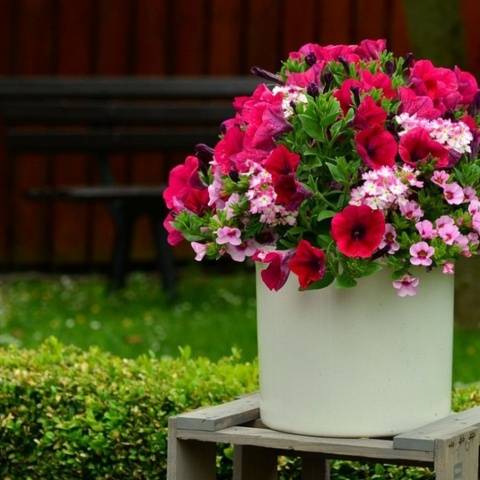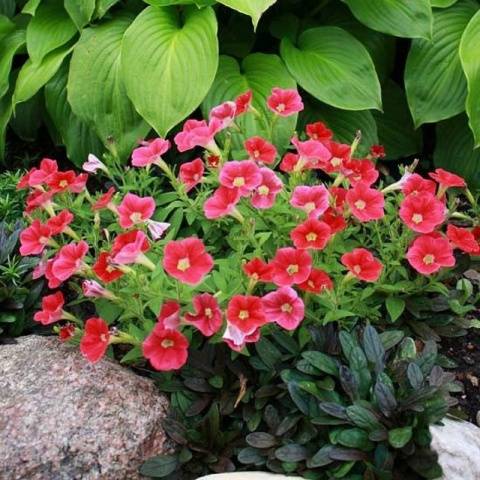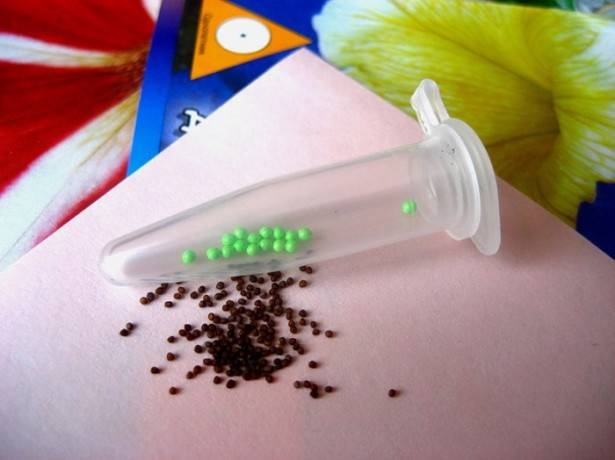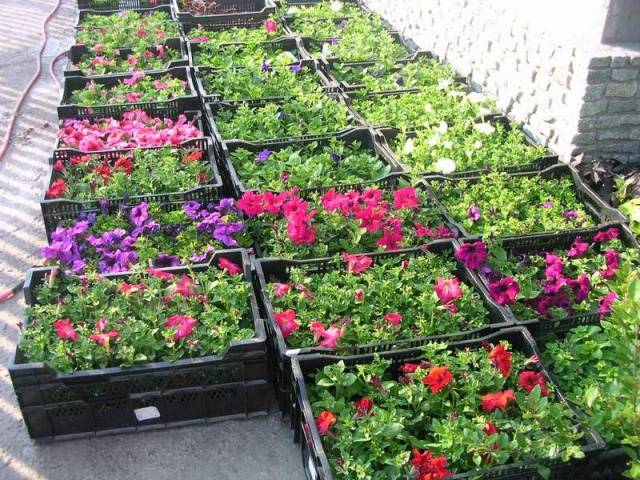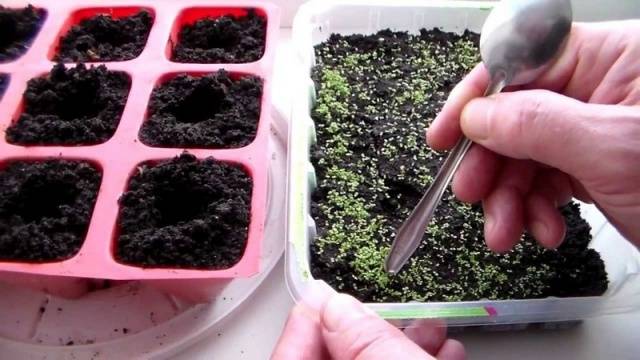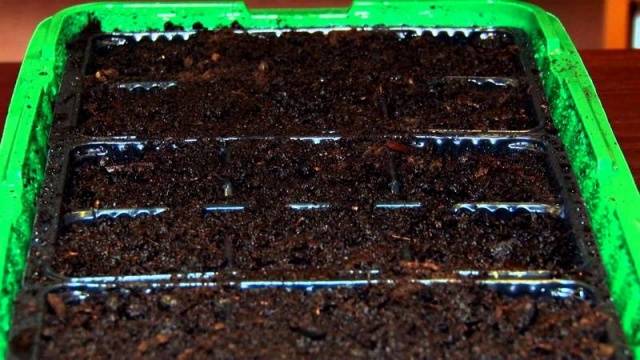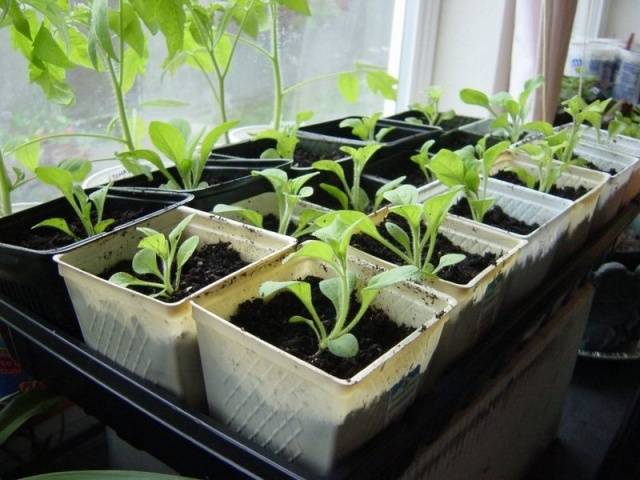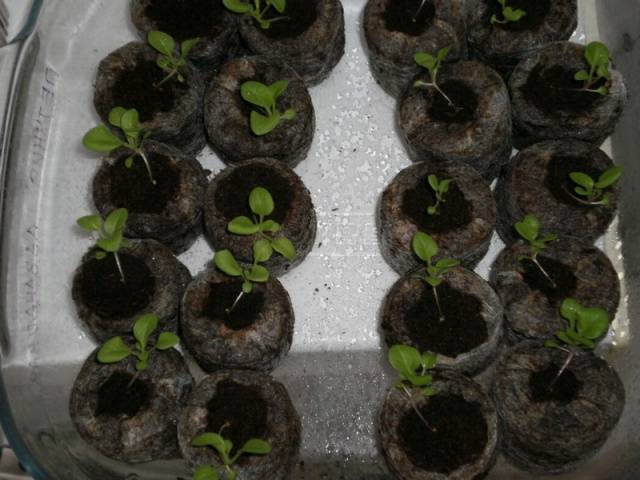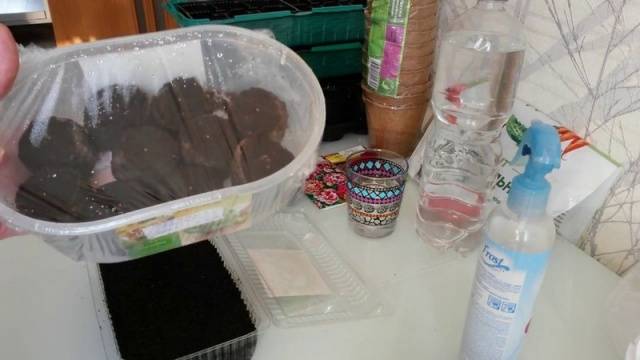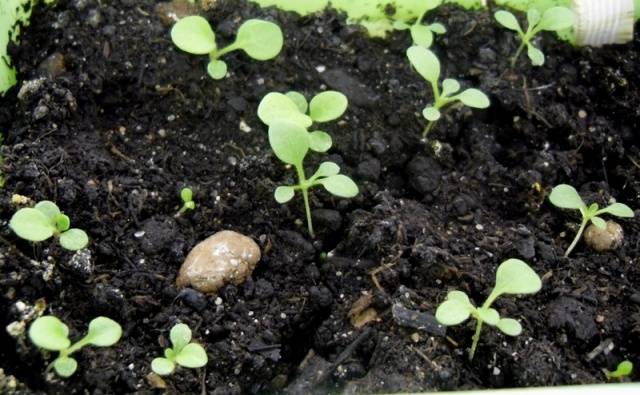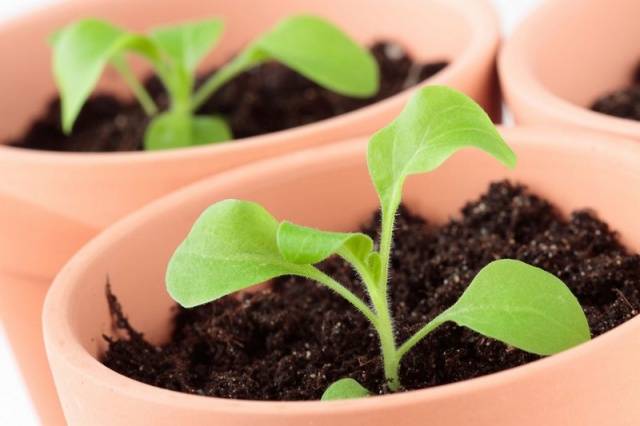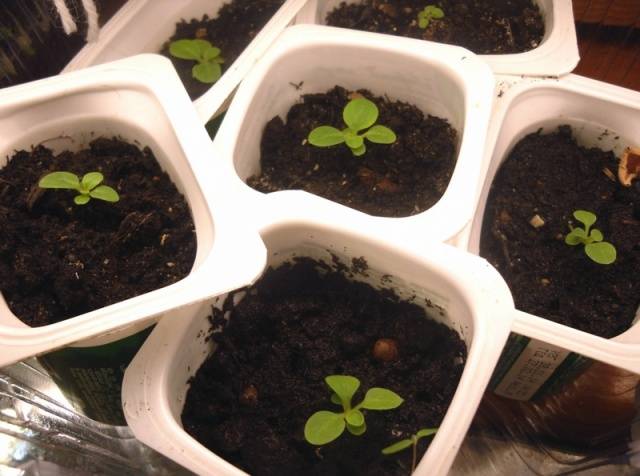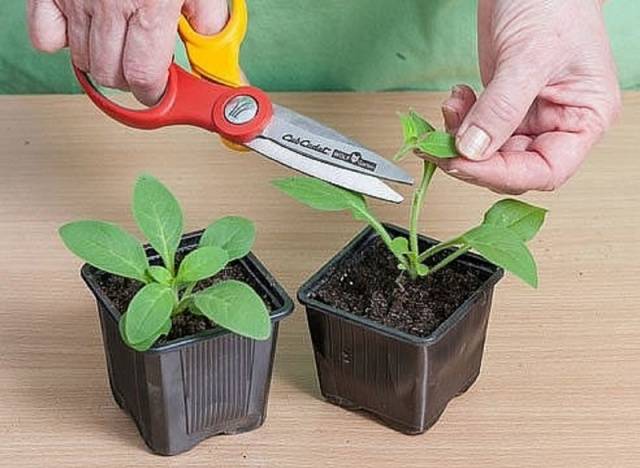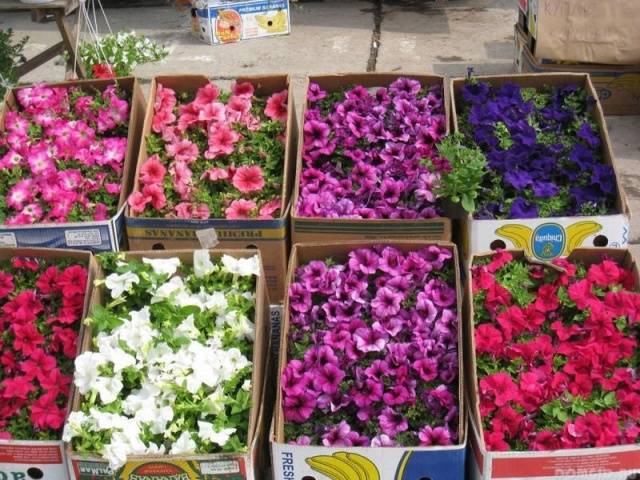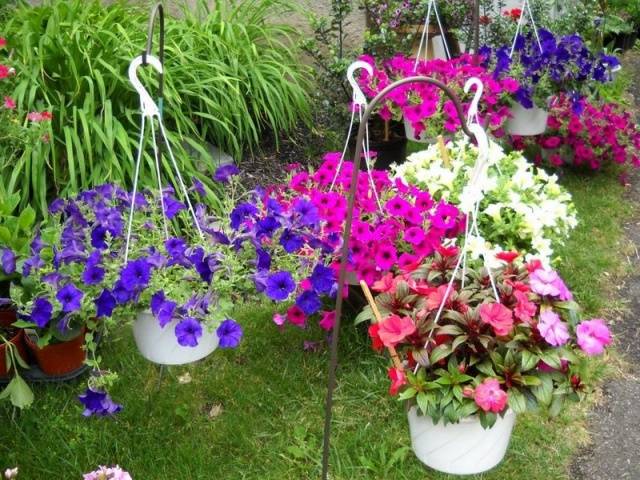Content
Petunia is a very decorative and unpretentious flower to care for. Many varieties allow you to grow it in pots or flowerpots, and in flower beds, decorate alpine slides or discounts. However, there is a very difficult stage in growing this flower - planting seeds for seedlings.
It often happens that we sow, grow, take care of, and in the end we do not get such beautiful flowers as on a bag of seeds. Why this happens, and how to sow petunia correctly - this is what this article is about.
How to plant petunia correctly
Before thinking about how to grow seedlings of petunias at home, you need to decide on the variety of this flower, buy seeds.
There are a great variety of varieties, among them there are both double and glossy flowers, absolutely any shade and size. Petunia varieties are divided into several groups:
- Bush multi-flowered petunia grows in the form of a small (up to 35 cm) bush, completely covered with medium-sized flowers (about 6 cm in diameter). These varieties are characterized by resistance to weather conditions.
- Bush varieties with large inflorescences (about 10-12 cm) are able to decorate the most exquisite flower garden, they look favorably on flower beds, in flowerpots or decorative boxes. It should be remembered that large flowers can easily suffer from strong winds or heavy rainfall. It is best to grow such varieties on terraces or in gazebos, where there is a canopy and protection from the wind.
- Ampel varieties great for growing in hanging planters, but can also be used as a creeping plant. These petunias have long shoots adorned with many small to medium sized inflorescences.
- Dwarf variety can be used in various garden compositions, for example, in a rock garden. The bushes of this variety are compact and very decorative.
The growing season of petunias is about 12-14 weeks. In the climate of most of the country, this flower simply does not have time to bloom if it is sown directly into the ground.
Features of seeds
Petunia seeds are characterized by the fact that they are very small in size - round grains resemble poppy seeds, only they are colored not black, but brown.
On sale you can find petunia seeds for seedlings of two types:
- ordinary, poured into paper bags;
- granular, colored coated.
The cost of granulated seeds will, of course, be higher. But their advantage lies in the fact that, thanks to the color capsule, the size of each seed increases - it is more convenient to distribute them in the ground, since the seeds in the granules are larger and more noticeable.
Some gardeners note one drawback of granular plant seeds - the shell is poorly soluble in water, the seedlings of flowers have to be watered more abundantly than it needs. If the granule does not completely dissolve, the seedlings, in general, may not sprout, or the sprouts and roots of the petunia may be damaged.
How to properly grow petunia seedlings
First of all, it is necessary to determine the timing of sowing crop seeds for seedlings. Most varieties of this plant bloom 2.5-3 months after the first shoots appear. Proceeding from this, and also taking into account the peculiarities of the climate in a particular region, they determine the date of sowing seeds for seedlings.
Another nuance - ampelous varieties have a longer growing season, so they must be sown for seedlings before others.
Selection of containers and soil preparation for seedlings
It is necessary to sow petunia seeds at home in sufficiently deep containers - about 10 cm.It can be wooden, plastic or ceramic boxes, pots, containers, the main condition is that the container for seedlings is not metal, and that the container can be covered with foil or glass for germinating seeds.
It is best to use plastic food transparent containers: firstly, they are most often equipped with a lid, and, secondly, in soft plastic it is easy to make drainage holes with a simple awl or a thick needle.
Holes for draining excess water in the seedling container must be mandatory, since the plant does not like waterlogged soil.
For even better drainage of excess moisture, it is recommended to use a drainage layer. It can be expanded clay or broken red brick. This material is placed on the bottom of the seedling container.
The land for seedlings of petunias must meet several parameters:
- have neutral or weak acidity;
- be loose and well oxygenated;
- have a light composition;
- not be too nutritious (this is necessary to form a strong root system);
- do not retain moisture.
Of course, you can buy a special potting soil mixture at the flower shop, but it is also easy to prepare it yourself.
To do this, you need to mix turf soil, coconut substrate, humus, peat and sand. All components are mixed well. If the soil is acidic, you can add wood ash or a little lime.
The finished soil is thoroughly crushed by hand, you can sift it through a sieve. Now the soil should be disinfected. For this, the substrate is placed in an oven or microwave for 30-60 minutes or poured with boiling water.
A drainage layer is placed in containers washed with soapy water or potassium permanganate, and a substrate is poured on top. Thoroughly compact the earth to prevent subsidence of small petunia seeds. Water the soil abundantly with warm water with the addition of manganese.
How to properly sow petunia in the soil
Small petunia seeds are sown in slightly specific ways - there are several of them, each housewife herself chooses the most convenient method for herself:
- Regular (non-granular) plant seeds should be mixed with dry coarse sand. Now they take two toothpicks, moisten one of them with water and try to grab one seed. When the seed sticks to the toothpick, it is transferred to the right place, and the second toothpick is used to detach the seed.
- Another method involves the presence of snow on the site. White snow makes a great backdrop for dark petunia seeds. Snow is spread over the surface of the soil and seeds are placed on it. When the snow melts, the seeds will be firmly pressed to the ground and distributed at the desired interval.
- If using granular petunia seeds, it is best to spread them out with tweezers. Landing scheme - 3x3 cm.
- There are special cassettes for small seeds. When using such cassettes, one flower seed must be placed in each cell.
- If seedlings petunias are grown in peat tablets, they are previously placed in a plastic tray and poured over with water. When the tablets are swollen, one petunia seed can be transferred into each of them.
- You can pre-germinate flower seeds. To do this, they are laid out on a moistened paper towel and placed in a plastic bag. The napkin must be periodically moistened so that it is not dry, and the bag is opened several times a day to air the seeds. After 3-5 days, sprouts will appear, which can be carefully transferred to containers with soil. This method is especially good for granular petunia seeds - the shell will gradually dissolve and the plant will not suffer.
After the seeds have been sown, they need to be sprinkled with water from a spray bottle. It is best to add a little manganese to the irrigation water in the first few days to disinfect the sprouts.
It is not necessary to sprinkle the seeds of petunia with earth - they will take root and will germinate so well. As a last resort, if in doubt, you can sprinkle the seeds with the thinnest layer of loose sand or soil mixture for petunias.
Now the boxes are covered with lids, glass or foil and placed in a very warm and bright place where the temperature is kept constant at 23-25 degrees. If necessary, you need to immediately use the illumination of a phytolamp or a simple fluorescent lamp.
It is very important to remove the condensation accumulated on the lid every day - drops can clog the seeds into the soil. Once a day, the film or glass is wiped with a cloth, thereby airing the seedlings.
Further care for petunia seedlings
If the petunia is planted correctly, the first shoots should appear in five days. This means that the most difficult thing is over - the seeds have sprouted. Every day it is necessary to open containers with seedlings, gradually increasing the airing time. Do this until the plants shed their seed coats - then the seedlings are opened completely.
To strengthen the plants and promote rooting, the containers are placed in a cooler room with a temperature of about 18 degrees for several days.
This is done so that the seedlings of petunias do not grow, and all its forces were directed to the development of the root system.
Watering fragile sprouts must be very careful using a spray bottle. This should be done as needed - both waterlogging and lack of moisture are destructive for petunia seedlings.
The first 1-1.5 months, the seedlings will grow very slowly, and this is normal, because the root mass of petunias is growing.
During this period, additional illumination is especially important - lamps should be turned on from early morning until late at night, especially on cloudy and rainy days.
The appearance of the first pair of true leaves suggests that it is time to dive the seedlings of petunias. This stage is very important, since the dive does not allow excessive stretching of the stems, helps to strengthen the roots.
Sometimes the petunia is dived several times, with each next transplant increasing the size of the seedling containers. After each pick, the seedlings are placed in a place protected from the sun for several days, where the temperature is slightly lower than that to which the petunia is accustomed.
Now the phase of active growth of petunias begins. At this stage, plants quickly grow green mass, additional leaves, twigs and stems appear. You can start shaping a bush and remove unnecessary shoots by pinching the central or lateral stems.
Very often, petunia blooms before its seedlings are transferred to the ground. It is recommended to remove the buds, otherwise the plant will weaken and the bush will stop growing. To see the shade of petunias, you can leave one flower on each plant - this will help to correctly arrange the flower bed.
With further cultivation, it is necessary to carry out regular feeding petunias. Do this for the first time 10 days after the dive and repeat every 10 days before transferring the petunias to a permanent place.
As a replenishment, nitrogen-based complex fertilizers for flowers are used, but the concentration of this substance should be moderate.
Approximately two weeks before transplanting the petunia seedlings to a permanent place, the seedlings need to be hardened. To do this, containers with plants are taken out into the street or onto a balcony with open windows. They choose warm days for hardening, but avoid wind and direct sunlight.
Everything, seedlings of petunias are ready for planting in open ground!
About, how to plant petunia for seedlings, whether this or that method of preparing seeds will be correct, gardeners have been arguing for more than a dozen years. There are many options for planting this flower: someone sows seeds directly into the ground, and someone hardens them in the refrigerator for two months. Everyone has their own methods, but the result should be the same - beautiful and bright flowers in the flower beds, delighting the owner until the first cold weather.
To better assimilate the information, you can watch a video on how to plant a petunia correctly on your site:
